The figure below shows the V-I characteristic of a semiconductor diode.
(i ) Identify the semiconductor diode used.
(ii) Draw the circuit diagram to obtain the given characteristic of this device.
(ii) Briefly explain how this diode can be used as a voltage regulator.
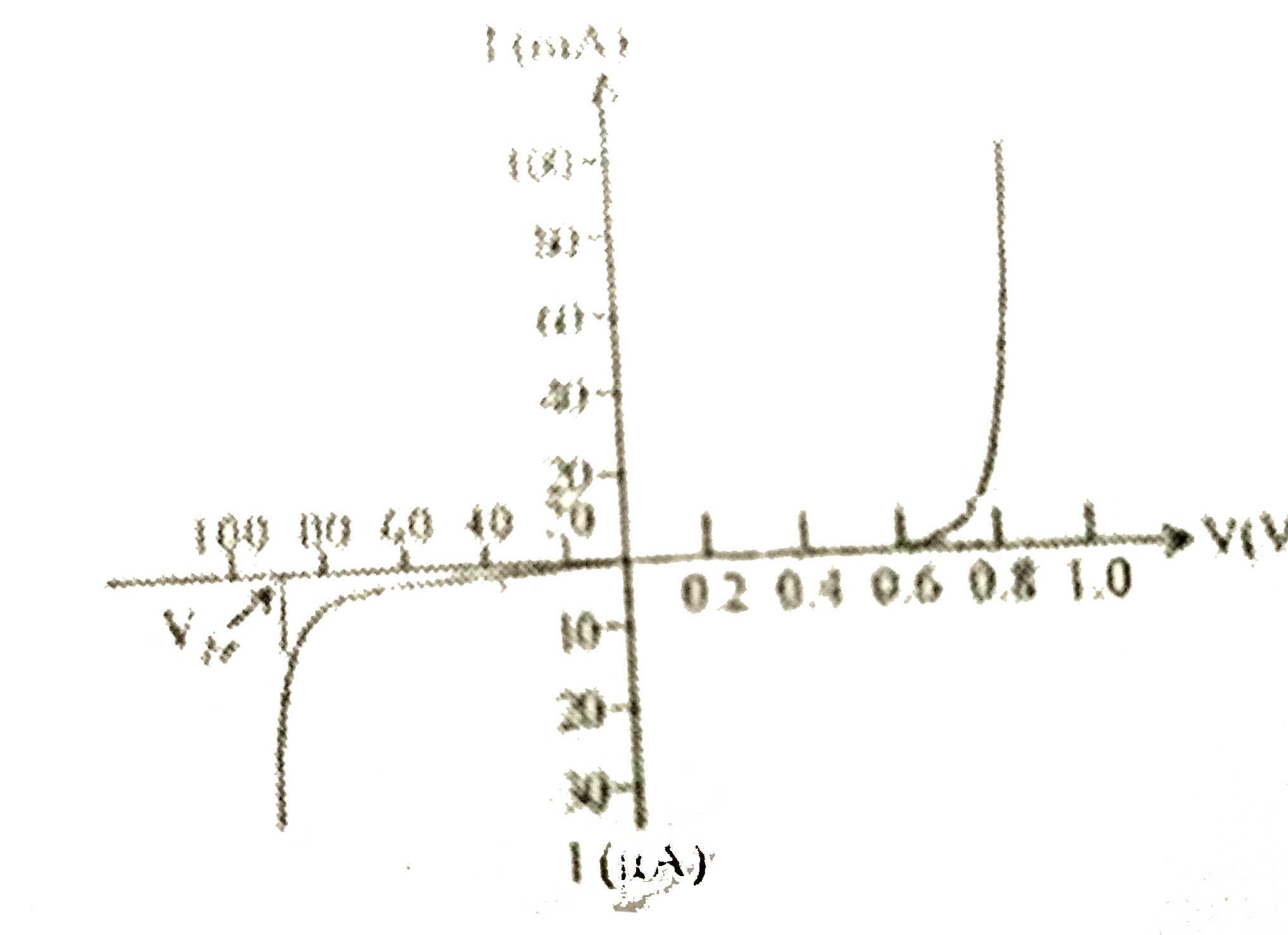
(i) Semiconductor diode in Zener diode.
(ii) Circuit diagram 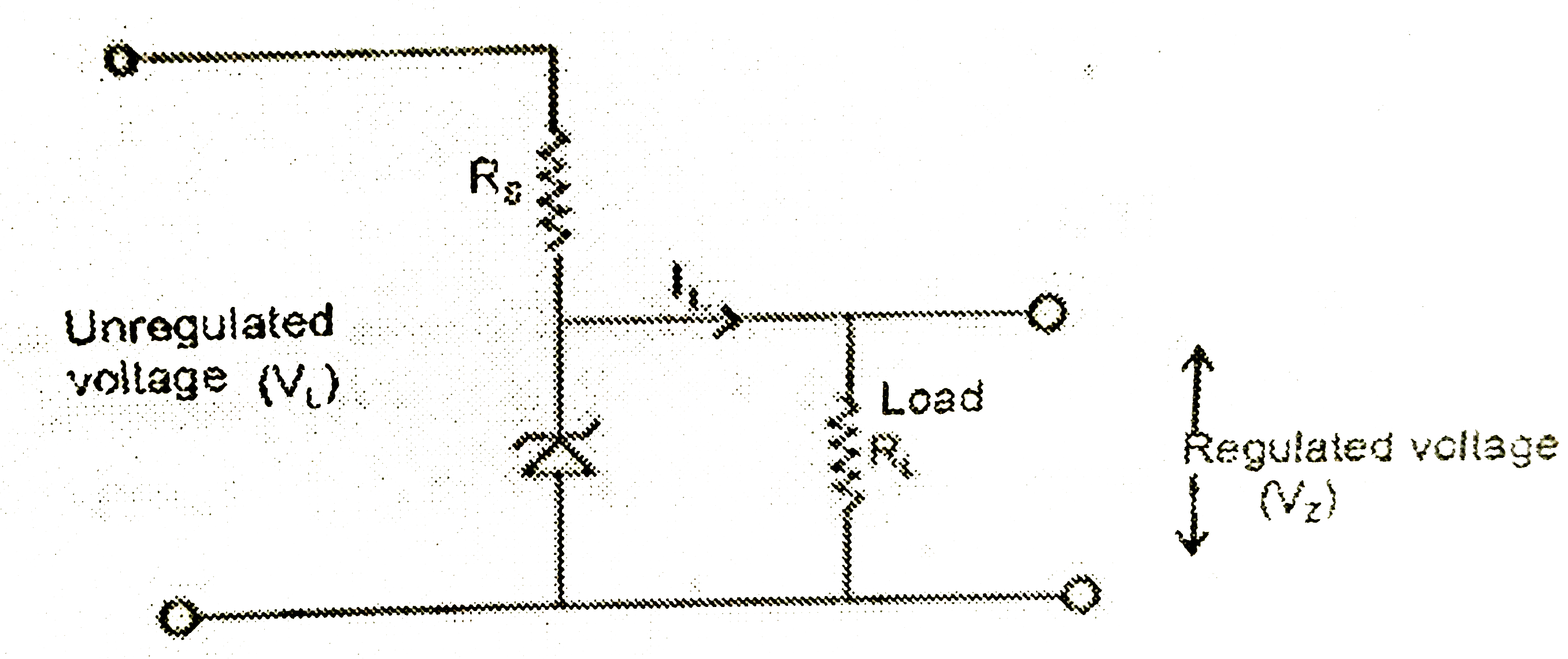
(iii) Zener diode as a voltage regulator: When the input d.c yollage increasus beyond the voltage across Zener diode becomes constant equal to Zener break down voltage, but the current through the Zener diode circuit rises sharply as the dynamic resistance of Zener dude becomes the zero after Zener break down voltage. Due to which there is an increase in voltage drop across R5. Since RL is Connected in paralle! so the voltage across RL remains the same as that of Zaner break down Hence, output voltage remains constant.
Topper's Solved these Questions
- XII BOARDSBOOK - XII BOARDS PREVIOUS YEARCHAPTER - XII BOARDSEXERCISE - SET-II
35 Videos
- XII BOARDSBOOK - XII BOARDS PREVIOUS YEARCHAPTER - XII BOARDSEXERCISE - SET-III
25 Videos
- XII BOARDSBOOK - XII BOARDS PREVIOUS YEARCHAPTER - XII BOARDSEXERCISE - SET III
9 Videos
- SAMPLE PAPER 2019BOOK - XII BOARDS PREVIOUS YEARCHAPTER - SAMPLE PAPER 2019EXERCISE - SECTION D
6 Videos
Similar Questions
The figure shows the V-I characteristic of a semiconductor diode designed to operate under revese bias
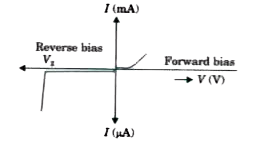
(a) identify the semiconductor diode used
(b) draw the cirucuit diagram to obtain the given characteristics of this devics
(c ) briefly expain one use of this device
View SolutionIdentify the semiconductor diode whose I-V characteristics as shown:
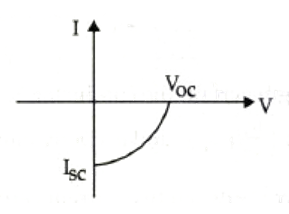
View Solution
Knowledge Check
The V-I characteristic of a silicon diode is shown in figure . The resistance of the diode at ID=15 mA is
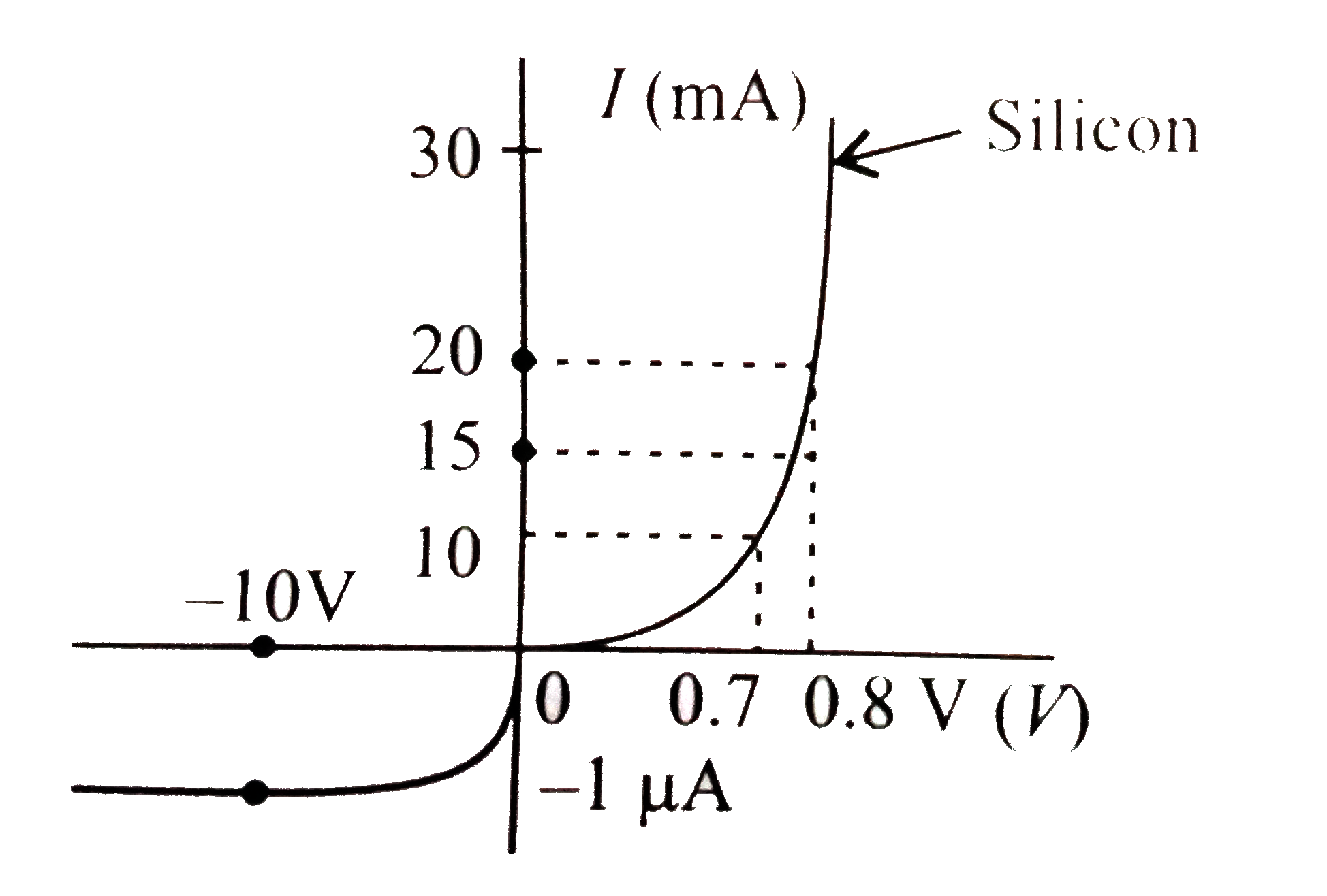 A5ΩB10ΩC2ΩD20Ω
A5ΩB10ΩC2ΩD20ΩThe V-I characteristic of a silicon diode is shown in figure . The resistance of the diode at ID=15 mA is
 A5ΩB10ΩC2ΩD20Ω
A5ΩB10ΩC2ΩD20Ω
Identify the semiconductor diode whose I-V characters is as shown:
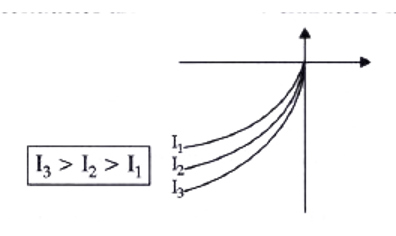
View SolutionName the semiconductor device that can be used as a rectifier. Draw the I-V characteristics of the device.
View SolutionDraw the I-V characteristics of a zener diode also sketch the circuit diagram of zener diode as a voltage regulator
View SolutionDraw the I-V characteristics of a zener diode also sketch the circuit diagram of zenre dioode as a voltage regulator
View SolutionDraw the I - V characteristics of Ge and Si pn- junction diodes and explain the same .
View SolutionName the semiconductor device that can be used to regulate an irregulation dc power supply. With the help of I-V characteristics of this device, explain its working.
View Solution
